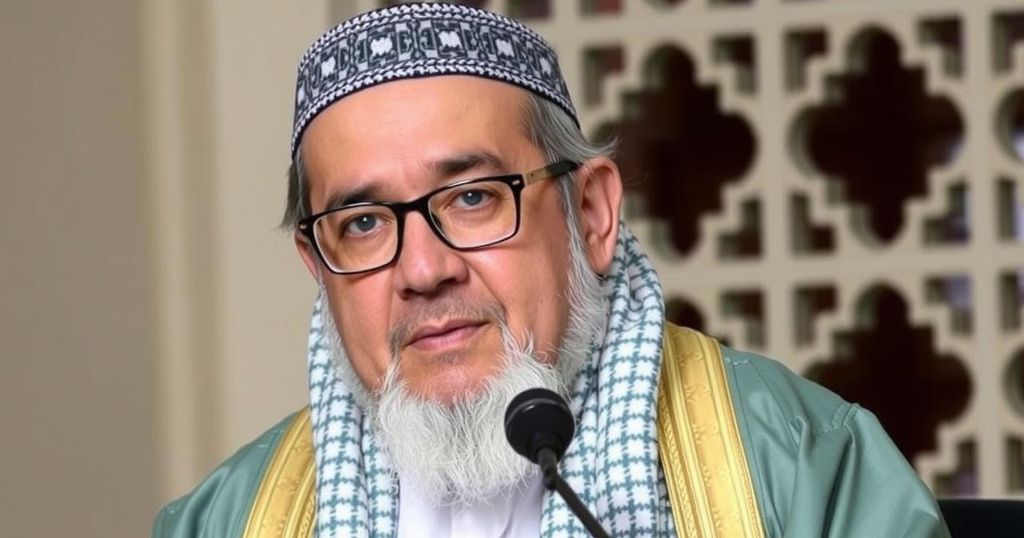Amnesty International Calls for Rejection of Extradition Requests for Poet Abdul Rahman Al-Qaradawi

Amnesty International has urged Lebanese authorities to reject extradition requests for poet Abdul Rahman Al-Qaradawi from Egypt and the UAE. Detained after criticizing these governments, Al-Qaradawi risks severe human rights violations if extradited. The case tests Lebanon’s commitment to freedom of expression and human rights obligations under international law.
In light of the extradition requests from Egypt and the United Arab Emirates (UAE) for Abdul Rahman Al-Qaradawi, a prominent poet with dual Egyptian-Turkish nationality, Amnesty International has called upon the Lebanese authorities to reject these requests. Al-Qaradawi was detained arbitrarily by Lebanese security forces after he made public criticisms of the regimes in Egypt, the UAE, and Saudi Arabia during a recent visit to Syria.
Sara Hashash, Deputy Director for the Middle East and North Africa at Amnesty International, expressed deep concerns over Al-Qaradawi’s detention, emphasizing that it is believed to result from the legitimate exercise of his right to freedom of expression. She noted that returning him to Egypt or the UAE would expose him to severe human rights violations, including enforced disappearance and torture.
The situation highlights a significant challenge for the Lebanese government regarding its commitment to upholding freedom of expression. Al-Qaradawi’s case exemplifies the risk faced by individuals who openly criticize authoritarian regimes, and Amnesty International stresses the need for Lebanon to prioritize human rights over political and economic considerations.
Amnesty International has urged Lebanese authorities to release Al-Qaradawi immediately and facilitate his safe passage to Turkey or another destination of his choosing. The decision on his extradition is imminent and represents a crucial test of Lebanon’s dedication to international human rights obligations.
Abdul Rahman Al-Qaradawi, who was detained on December 28 upon his return from Syria, is embroiled in extradition requests issued by Egypt and the UAE. His arrest followed remarks made during a visit to Damascus, where he criticized the governments of these nations. Al-Qaradawi was sentenced in absentia by an Egyptian court in a politically charged case, which Amnesty International believes underpins the extradition requests. His family fears for his safety if extradited, given the history of human rights abuses in those countries. The Lebanese authorities are expected to make a critical decision shortly regarding whether to comply with these extradition demands. His plight is exacerbated by the fact that his sister has also faced similar injustices in Egypt, being held on terrorism charges without credible evidence. Human rights groups are actively working to intervene and prevent his extradition, citing obligations under international law regarding the principle of non-refoulement, which prohibits returning individuals to countries where they face threats to their safety and freedom.
The case of Abdul Rahman Al-Qaradawi represents a significant intersection of human rights and political issues in the Middle East. His arbitrary detention and the offenses leading to extradition requests raise serious questions about Lebanon’s adherence to its commitments under international law. As the Lebanese authorities deliberate over these requests, the international community is watching closely, advocating for the protection of individual rights and freedoms. It is imperative that Lebanon rejects these extradition requests and ensures Al-Qaradawi’s safety by allowing him to travel to a safe location of his choice.
Original Source: www.amnesty.org








